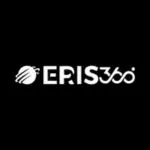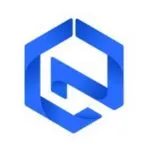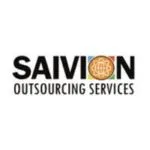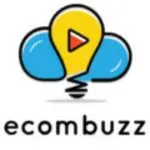
Top B2B eCommerce Development Companies
Are you looking for Top software development companies? Don’t worry; we have got that covered for you. We have put-forth the list of the best software developers from around the world. The companies will provide you with state-of-art and fully functional software development services. Customized software development companies listed in TopDevelopers.co possess the expertise that enables us to develop high-quality software applications and fulfill all the essential needs of your business. The list of leading software development agencies have highly efficient teams that will keep track of all the upcoming software technologies so that they can develop better software for you. Our list will be your ally in finding the best software development firms and help your business in the long run.
List of the Best B2B eCommerce Development Agencies | Top B2B eCommerce Development Companies in the World

-
Employees: 11 to 50
-
Min. Project amount: $10,000
-
Country: NY, USA

Cyber Nest
-
Employees: 11 to 50
-
Min. Project amount: $25-$49/hr
-
Country: NY, United States
-
Employees: 101 to 250
-
Min. Project amount: $10000
-
Country: Karnataka, India
-
Employees: 11 to 50
-
Min. Project amount: $1,000+
-
Country: Singapore

Telepathy Infotech
-
Employees: 51 to 100
-
Min. Project amount: $5,000+
-
Country: Casper, WY

Onex Software
-
Employees: 11 to 50
-
Min. Project amount: $10,000+
-
Country: İzmir, Türkiye

Saivion India
-
Employees: 11 to 50
-
Min. Project amount: $1,000+
-
Country: New Delhi, INDIA

SAT Microsystems
-
Employees: 251 to 500
-
Min. Project amount: $250,000+
-
Country: Jeddah, Saudi Arabia

Elite M Commerce
-
Employees: 101-250
-
Min. Project amount: Undisclosed
-
Country: NJ, United States

Ecom Buzz
-
Employees: 0 to 10
-
Min. Project amount: $1,000+
-
Country: Kolkata, India
1.What are B2B eCommerce Development Companies?
These are specialized agencies or companies that focus on building and implementing online sales platforms specifically designed for business-to-business transactions. Unlike B2C (business-to-consumer) eCommerce sites that cater to individual shoppers, B2B platforms often require complex features tailored to organizational needs, such as:
- Customized Catalogs and Pricing: Displaying different product selections and prices for various customer groups or individual clients.
- Bulk Ordering and Quotes: Handling large volume purchases and requests for custom quotes.
- Account Management: Allowing businesses to manage multiple users, roles, and purchasing permissions within their accounts.
- Integration with ERP/CRM Systems: Connecting the eCommerce platform with existing enterprise resource planning and customer relationship management software.
- Flexible Payment Options: Supporting purchase orders, invoicing, and other B2B payment methods.
Top B2B eCommerce Development Companies (Examples):
Based on the search results, here are some companies mentioned as leaders or with strong expertise in B2B eCommerce development:
- ValueCoders: Known for custom B2B solutions using platforms like Magento, Shopify Plus, and WooCommerce, emphasizing seamless integration and headless commerce.
- PixelCrayons: A long-standing company with experience in delivering innovative B2B eCommerce solutions.
- DreamSoft4u: Specializes in custom B2B eCommerce development, particularly in healthcare, fintech, and technology sectors.
- Magneto IT Solutions: Experts in building B2B portals with features like digital catalog management and integration with various enterprise systems.
- Webkul: Offers wholesale eCommerce development services with a focus on custom and scalable solutions, including mobile app development.
- Hornet Dynamics: Specializes in creating custom B2B eCommerce solutions with a focus on user experience and advanced B2B features.
- OrangeMantra: Provides end-to-end B2B eCommerce solutions, including consulting and customization on various platforms.
- Ziffity: Offers B2B eCommerce development services including consulting, implementation, custom development, and integration on platforms like Adobe Commerce and Shopify Plus.
- Digital Silk: Known for creating custom eCommerce websites with a focus on B2B brands.
- Clarity Ventures: A B2B company that builds B2B-specific eCommerce platforms with a focus on integration and customer loyalty features.
Choosing the Right Company:
When selecting a B2B eCommerce development company, consider their:
- Experience: Look for a proven track record with B2B projects and clients in your industry.
- Expertise: Ensure they have a strong understanding of B2B specific functionalities and the platforms relevant to your needs (e.g., Magento, Shopify Plus, BigCommerce, OroCommerce).
- Portfolio: Review their past work to assess the quality and complexity of their B2B eCommerce solutions.
- Security and Compliance: Confirm their knowledge of data security and relevant regulations.
- Communication and Support: Choose a company that offers clear communication and ongoing support.
2.What features should a B2B eCommerce platform include?
A more comprehensive list of features a robust B2B eCommerce platform should include, categorized for clarity:
Core Transactional Features:
- Customized Catalogs and Pricing: Displaying tailored product selections and specific pricing based on customer segments, contract terms, or order volume.
- Tiered Pricing and Discounts: Offering volume-based discounts and different pricing levels for various customer groups.
- Bulk Ordering: Streamlined processes for large quantity purchases.
- Quick Order/Reordering: Facilitating fast repeat purchases with saved lists or order history.
- Quote Management: Enabling customers to request quotes, and providing tools for sellers to create, negotiate, and approve them.
- Order Management: Comprehensive tracking of orders, shipping, and fulfillment.
- Payment Options: Supporting various B2B payment methods like purchase orders, invoicing, credit terms, and secure online payment gateways.
- Tax Management: Handling complex B2B tax rules and exemptions.
Account and User Management:
- Multi-User Accounts: Allowing businesses to create multiple user profiles under a single account.
- Role-Based Access and Permissions: Defining specific access levels and functionalities for different users within a buyer organization.
- Customer Segmentation: Categorizing customers for targeted pricing, promotions, and content.
- Account Hierarchy Management: Supporting complex organizational structures and approval workflows.
Product Information and Catalog Management:
- Advanced Product Catalogs: Handling large and complex product catalogs with detailed specifications, documentation, and rich media.
- Customizable Product Configurations: Allowing buyers to configure products with specific options and features.
- Product Comparisons: Enabling buyers to compare features and specifications of different products.
- Digital Asset Management (DAM) Integration: Managing and displaying product images, videos, and other digital assets.
Integration Capabilities:
- ERP (Enterprise Resource Planning) Integration: Seamlessly connecting with systems for inventory, accounting, and order processing.
- CRM (Customer Relationship Management) Integration: Synchronizing customer data and interactions for improved relationship management.
- Inventory Management System Integration: Real-time visibility into stock levels.
- Shipping and Logistics Integration: Connecting with shipping providers for real-time rates and tracking.
- PunchOut Integration: Allowing buyers to access the B2B platform directly from their procurement systems.
User Experience and Personalization:
- Mobile Responsiveness: Ensuring the platform is accessible and functional on all devices.
- User-Friendly Interface (UI) and Navigation: Intuitive design for efficient browsing and purchasing.
- Personalized Content and Recommendations: Displaying relevant products and information based on past behavior and customer segments.
- Search Functionality: Robust search capabilities to quickly find specific products.
Additional Important Features:
- Analytics and Reporting: Providing insights into sales trends, customer behavior, and platform performance.
- Marketing and Promotion Tools: Enabling targeted promotions, discounts, and email marketing.
- Customer Support Features: Offering tools for customer inquiries, order support, and issue resolution.
- Security: Robust security measures to protect sensitive business data and transactions.
- Scalability: The platform should be able to handle future growth in product catalog size and transaction volume.
This comprehensive set of features ensures that a B2B eCommerce platform can effectively meet the complex needs of business buyers and sellers, fostering efficient and profitable online trade.
3.How much does it cost to develop a B2B eCommerce website?
The factors influencing the cost of B2B eCommerce website development, let’s break it down with subheadings:
Factors Influencing B2B eCommerce Website Development Costs
The price tag for developing a B2B eCommerce website is not fixed and is influenced by a multitude of factors. Here’s a more detailed look:
Platform Choice
The underlying eCommerce platform you choose will significantly impact the development cost.
- Basic Platforms (e.g., Shopify Plus, BigCommerce Enterprise): These platforms offer robust B2B features out-of-the-box or through readily available apps. While they have subscription fees (which can be substantial for enterprise tiers), the initial development cost for a basic to mid-level B2B site might fall in the $10,000 – $40,000 range, primarily covering customization, theme adjustments, and integration of specific apps.
- Open-Source Platforms (e.g., Magento/Adobe Commerce, WooCommerce): These platforms offer greater flexibility and scalability but typically require more custom development.
- WooCommerce: For simpler B2B needs or businesses already heavily invested in WordPress, initial development can range from $10,000 – $30,000.
- Magento/Adobe Commerce: For more complex B2B requirements with extensive customization and integrations, the cost can easily range from $25,000 – $150,000+, including licensing fees for Adobe Commerce.
- Custom-Built Platforms: Developing a B2B eCommerce platform from scratch offers maximum flexibility but is the most expensive option, easily exceeding $100,000 and potentially reaching $250,000+. This is typically reserved for businesses with highly unique and complex needs that cannot be met by existing platforms.
Complexity of Features and Customizations
The more tailored and intricate your B2B functionalities, the higher the development cost.
- Basic Features (as mentioned in your initial breakdown): Custom pricing, bulk ordering, basic account management will fall within the lower end of the cost spectrum.
- Mid-Level Features: Implementing complex multi-user account structures with granular permissions, advanced quote management workflows, and more sophisticated product catalog management will increase the cost.
Advanced Features: Features like dynamic pricing based on order history or contract terms, complex integration with multiple ERP/CRM systems, highly customized approval workflows, and personalized content delivery will significantly drive up the development expenses.
Integration Requirements
Connecting your B2B eCommerce platform with existing business systems is often crucial but adds to the cost.
- Number of Integrations: Integrating with one or two core systems (e.g., a single ERP or CRM) will be less expensive than integrating with multiple systems.
- Complexity of Integrations: Simple API integrations are less costly than complex, custom-built integrations requiring significant development effort.
Design Complexity and User Experience (UX)
The level of customization and sophistication in the website’s design and user experience will impact the cost.
- Theme-Based Design with Minor Customizations: Utilizing a pre-built theme with slight branding adjustments will be the most cost-effective.
- Custom Design: Creating a unique visual identity and user interface from scratch requires significant design and front-end development effort, increasing the cost.
- Advanced UX Features: Implementing highly interactive elements, personalized dashboards, and complex navigation will add to the development time and cost.
Number of Products and Data Migration
A large and complex product catalog can increase development costs, especially during initial setup and data migration.
Data Cleansing and Migration: Transferring product data, customer information, and order history from legacy systems can be a time-consuming and costly process.
Development Team and Location
The experience and location of the development team (in-house, freelance, or agency) will also influence pricing.
- Agency Costs: Agencies typically have higher overheads but offer a team of specialists.
- Freelancer Costs: Freelancers can be more cost-effective but may have limitations in terms of team size and availability.
- Geographical Location: Development rates vary significantly based on location.
Ongoing Maintenance and Support
While not part of the initial development cost, it’s crucial to factor in ongoing expenses for maintenance, security updates, bug fixes, and technical support. These costs can range from a few hundred to several thousand dollars per month depending on the complexity of the site and the level of support required.
In conclusion, the cost to develop a B2B eCommerce website is highly variable. A thorough understanding of your specific requirements, the chosen platform, the complexity of features and integrations, and the design sophistication will be key to obtaining an accurate cost estimate from potential development partners.
4.How Long Does It Take to Develop a B2B eCommerce Platform?
The development timeline for a B2B eCommerce platform typically ranges from 12 to 24 weeks, but this can vary based on several critical factors:
1. Project Scope and Requirements
The size of the catalog, number of user roles, complexity of workflows, and level of customization required all impact the timeline. A simple B2B portal may take as little as 10–12 weeks, while feature-rich platforms with multiple user types and roles can take closer to 6 months.
2. Platform Selection
Using a ready-made B2B eCommerce solution (like Shopify Plus, BigCommerce B2B, or Magento) can speed up development. Custom-built solutions, while more tailored, typically take longer due to design, development, and testing phases.
3. Design and UI/UX
If your business requires a fully customized design with unique branding and tailored user experiences, expect additional time for wireframing, prototyping, and feedback cycles.
4. Third-Party Integrations
Integration with ERP systems (like SAP, Oracle), CRMs (like Salesforce, Zoho), accounting software, inventory systems, or payment gateways will require additional time, especially if APIs are not well-documented or need to be custom-built.
5. Testing and Quality Assurance
Before launch, thorough testing for usability, mobile responsiveness, security, and functionality is critical. This includes resolving bugs and optimizing performance, which can add 2–4 weeks to the timeline.
6. Revisions and Feedback
Client feedback during the design and development process often leads to revisions. If feedback loops are prolonged or if multiple stakeholders are involved, the timeline may extend accordingly.
7. Content Migration and Data Entry
If you’re migrating data from an older system (products, user accounts, orders), the time needed for mapping, testing, and importing data should be considered in the project plan.
In summary, a typical B2B eCommerce development timeline is 3 to 6 months, depending on the business’s unique requirements and the complexity of its operations. For enterprise-level projects, it could take even longer. Proper planning, clear goals, and collaboration with an experienced development partner can help streamline the process.





